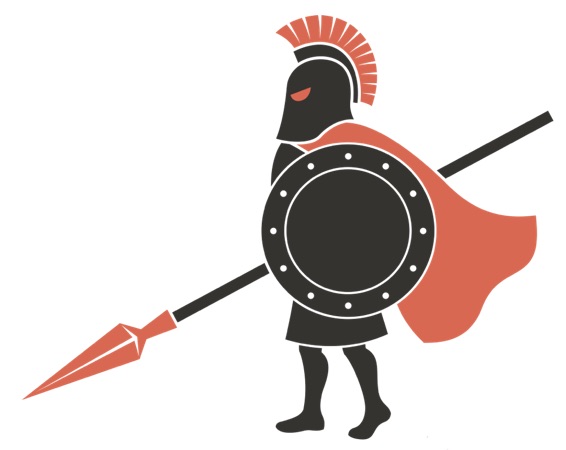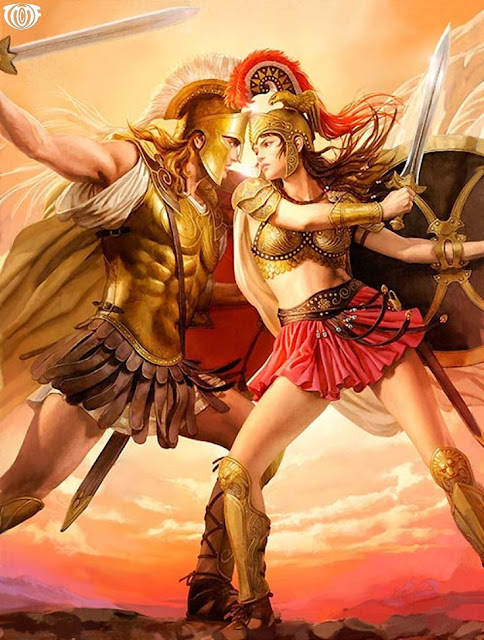ARES loves battle for its own sake, and his sister Eris is always stirring up occasions for war by the spread of rumour and the inculcation of jealousy. Like her, he never favours one city or party more than another, but fights on this side or that, as inclination prompts him, delighting in the slaughter of men and the sacking of towns. All his fellow-immortals hate him, from Zeus and Hera downwards, except Eris, and Aphrodite who nurses a perverse passion for him, and greedy Hades who welcomes the bold young fighting-men slain in cruel wars.
b. Ares has not been consistently victorious. Athene, a much more skilful fighter than he, has twice worsted him in battle; and once, the gigantic sons of Aloeus conquered and kept him imprisoned in a brazen vessel for thirteen months until, half dead, he was released by Hermes; and, on another occasion, Heracles sent him running in fear back to Olympus. He professes too deep a contempt for litigation ever to appear in court as a plaintiff, and has only once done so as a defendant: that was when his fellow-deities charged him with the wilful murder of Poseidon’s son Halirrhothius. He pleaded justification, claiming to have saved his daughter Alcippe, of the House of Cecrops, from being violated by the said Halirrhothius. Since no one had witnessed the incident, except Ares himself, and Alcippe, who naturally confirmed her father’s evidence, the court acquitted him. This was the first judgement ever pronounced in a murder trial; and the hill on which the proceedings took place became known as the Areiopagus, a name it still bears.
1. The Athenians disliked war, except in defence of liberty, or for some other equally cogent reason, and despised the Thracians as barbarous because they made it a pastime.
2. In Pausanias’s account of the murder, Halirrhothius had already succeeded in violating Alcippe. But Halirrhothius can only be a synonym for Poseidon; and Alcippe a synonym for the mare-headed goddess. The myth, in fact, recalls Poseidon’s rape of Demeter, and refers to a conquest of Athens by Poseidon’s people and the goddess’s humiliation at their hands. But it has been altered for patriotic reasons, and combined with a legend of some early murder trial. ‘Areiopagus’ probably means ‘the kill of the propitiating Goddess’, Areia being one of Athene’s titles.


Comments
Post a Comment